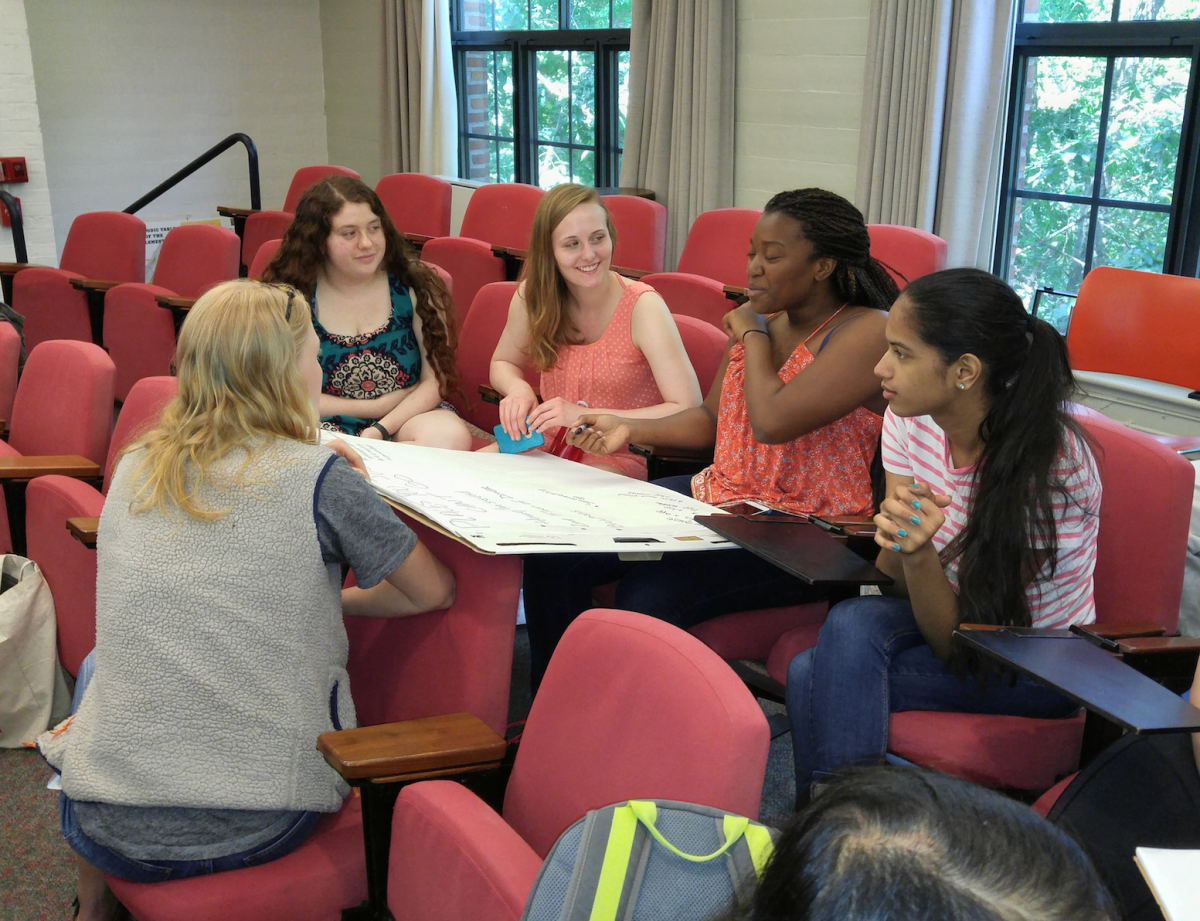Many Wellesley students go about their day ignoring the handicapped signs, ramps and elevators that are sprinkled around campus. But for a small percentage of the community, these accommodations, along with other less noticeable ones, are highly essential to everyday life.
Jim Wice, the Director of Disability Services, and Eniana Mustafaraj, a professor in the computer science department, have been collaborating in the past year to raise awareness of issues of accessibility on campus. For them, the issue of accessibility is a broad one, and one that many members of the Wellesley community are not aware of.
“There’s a lot that’s accessible that people don’t know how to find,” Wice explained. This means that for Disability Services part of the struggle is educating people about the resources that already exist.
Wice also challenged the common misconception that only students that use a wheelchair should use some of the physical accessibility accommodations.
“In terms of the definition for accessibility, I would prefer to use a universal definition that includes not just folks with disabilities but people of different ages and sizes and parents with baby carriages,” Wice stated.
Mustafaraj also pointed out that even able bodied students may find themselves suddenly considering accessibility more seriously if they suffer a sudden injury that makes it difficult to navigate stairs. “Everyone might need services like that at some point,” she explained.
In addition to the most visible disabilities, the two have also worked to address invisible disabilities. For Mustafaraj, a personal connection to one of these less noticeable disabilities led her to work with Wice.
“My son, who is seven, does have learning issues so I’ve come to appreciate very much all the services that the state offers for children who have learning disabilities,” she said. “And that’s not something that is visible, but rather it’s that you have to think about those physical spaces and other systems — how they support all kinds of disabilities, not only physical ones.”
Although computer science does not seem to overlap with disability accommodations, Mustafaraj often has to consider various accommodations in her professional work.
“I build systems, computational systems, online systems and there’s the question: who are the users and how do we broaden the user population?” Mustafaraj explained. “It turns out in order to do that you have to take into account different scenarios so that users with different capabilities would be able to access your system.”
Even with their combined skills, the two have realized that this work is not something they can do alone. Accordingly they have come up with various ideas to include the community as they brainstorm other ideas to improve the visibility and knowledge about accessibility on campus.
Their efforts started with the summer research students who were here on campus when most students were gone. Wice offered a presentation on the basics of accessibility issues which was attended by about 40 students, and presented them with the opportunity to brainstorm and discuss their own ideas related to the topic. Wice is now looking towards Disability Awareness Month in October and talking to administrators about funding to implement some of the student ideas.
One idea that summer students suggested was using orientation as a time to educate incoming first years on accessibility issues. Wice had proposed to First Year Dean Lori Tenser that she include accessible points in part of the annual scavenger hunt. However it proved difficult to use many of Wice’s suggestions because of the timing of the event, was held on a Saturday, when many academic buildings were closed. Tenser hopes to incorporate the theme of accessibility into next year’s scavenger hunt.
First Year Mentor (FYM) Katie LaBarge ’17 had various experiences with accessibility in the two years that she has undergone student leader training. In her first year she attended a workshop on the disability accommodations offered at Wellesley and how ableism manifests on campus, but this workshop was optional and was not required for all student leaders.
This year, LaBarge’s training concerning accessibility was not through a formal workshop.
“Most of the discussion of accommodations was situational and based on whatever we were discussing in our training,” LaBarge explained. “For example, if the FYMs were discussing the scavenger hunt during orientation, we discussed the accommodations that would be available for the event if one of our mentees had difficulty walking for a long period of time.”
For student leaders, disabilities accommodations or accessibility is one of the many topics that their mentees or residents may ask about, but LaBarge still feels that it is important to know that information.
“More specific training on disability accommodations and ableism would be a helpful component in student leader training, and several other student leaders that I have talked to have expressed a similar viewpoint. While I have never personally been asked a question about disability services or accommodations that I could not answer, it is certainly not out of the question for any student leader,” LaBarge said.
As a continuation of their efforts to involve the community in accessibility awareness and planning, Wice and Mustafaraj have launched a contest, challenging students to use technology or artistic media to help those with disability or to educate the Wellesley College community.
Like the types of accessibility themselves, Mustafaraj stressed that entries to the contest should be varied, but should ultimately help both current and prospective students.
“Anybody can shoot a video, right? Like get a go- pro and go around and then add your commentary,” Mustafaraj said. “You want to create this idea, especially for prospective students that might be like, ‘Oh, Wellesley has this strange architecture and accessibility is not a thing there,’ so they would avoid Wellesley entirely.”






